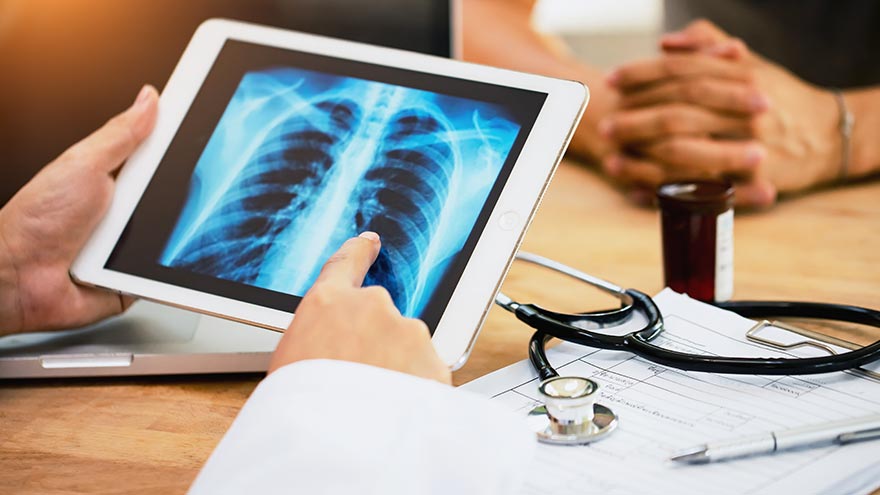Cancer Care at Its Best
With clinical excellence and innovative treatments, Renown stands as a beacon of hope and personalized care in the journey to defeat cancer.
November 09, 2022

Lung cancer is the leading cause of cancer deaths in both men and women in the U.S. The good news is the five-year survival rate increases dramatically if lung cancer is treated before spreading to other parts of the body. Julie Locken, MD, of Renown Health Imaging, explains more.
As you might expect, most lung cancer symptoms appear in the chest and can affect your breathing. Watch for signs such as:
That said, there are usually no symptoms in the early stages of lung cancer, which means getting screened can truly be a lifesaver. If you have a history of smoking, you should get screened as a precaution.
Around 80% of lung cancer cases stem from a history of smoking tobacco. But there are other known causes, such as secondhand smoke, radon, asbestos and diesel exhaust. It’s important to do what you can to eliminate exposure to all of these to reduce your lung cancer risk.
People with an immediate relative – a parent, sibling or child – diagnosed with lung cancer and people between 50 and 80 years old are also at higher risk and may need to consider screening.
People who are at the highest risk are those with a history of smoking tobacco, particularly smokers who averaged one pack of cigarettes per day for 20 years or more, as well as former heavy smokers who quit in the last 15 years.
Those with risk factors, such as current smokers or former heavy smokers who quit less than 15 years ago, should talk to their doctor about getting screened. You may become eligible if you have no symptoms. If symptoms occur, your doctor will order a different set of tests.
Renown X-Ray and Imaging offer low-dose computed tomography (CT). Low-dose CT has been proven to find lung cancer at its earliest stages and uses roughly a quarter of the radiation of a normal CT scan. Compared to chest X-rays, low-dose CT has been shown to increase survival rates by 20%.
One of our board-certified radiologists will review your scan. If something abnormal is found, a provider at the lung cancer screening program will contact you.
It’s important to remember not all abnormal findings are cancer. Other abnormalities, such as scarring or inflammation, can be detected. Your doctor may want to follow up with more tests or watch these abnormalities closely. If you are a current smoker, a smoking cessation program will also be strongly encouraged.